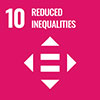Public expenditure and welfare state
Although Public Finance, understood as an organization of the financial activity of the public sector, in its double aspect of income and expenditure, can be considered as old as the first organized states, it was initially oriented towards the development and financing of activities related to external security, internal order, the justice system and expenses related to the maintenance of the head of state.
It was necessary to wait until the end of the 19th century, and more precisely until the period between the two world wars (mainly at the end of the latter) for the Welfare State to appear, as we know it in our days. State intervention has been especially relevant in: pensions and public transfers, public services in health, education and other social issues, protection standards for workers, consumers and citizens in general, and policies aimed at encouraging the creation and access to employment, both public and private.
However, the evolution of the public sector necessary to maintain the Welfare State has shown a very marked tendency towards growth, which has not been accompanied by the quantitative and qualitative improvement of the public goods and services offered. Over the last decades, the study of these issues has made it possible to identify a series of variables, typical of the functioning of the democratic system and the bureaucracy itself, that explain its inefficient growth, and that should be identified and corrected to obtain a fair and efficient Welfare State.
SDG






 Juan Francisco Corona Ramón
Juan Francisco Corona RamónHe is a supernumerary member of the Royal European Academy of Doctors. He has been a professor at Universitat de Barcelona, Uiniversitat de les Illes Balears and Universitat Internacional de Catalunya. His main research areas are: public treasury, the Spanish tax system, European tax integration, family business, world studies and geopolitics.
 Amelia Díaz Álvarez
Amelia Díaz ÁlvarezShe is a member of the Water Research Institute of the University of Barcelona and director of the UB-Planeta FyU Chair of Studies on Higher Education at Universitat de Barcelona. Her research lines have focused on five themes: public finance and taxation, environmental economy, tourism economy, water economy, and teaching and learning. She has served as Vice President of Teaching and Academic Policy and Quality at Universitat de Barcelona between 2016 and 2020.



